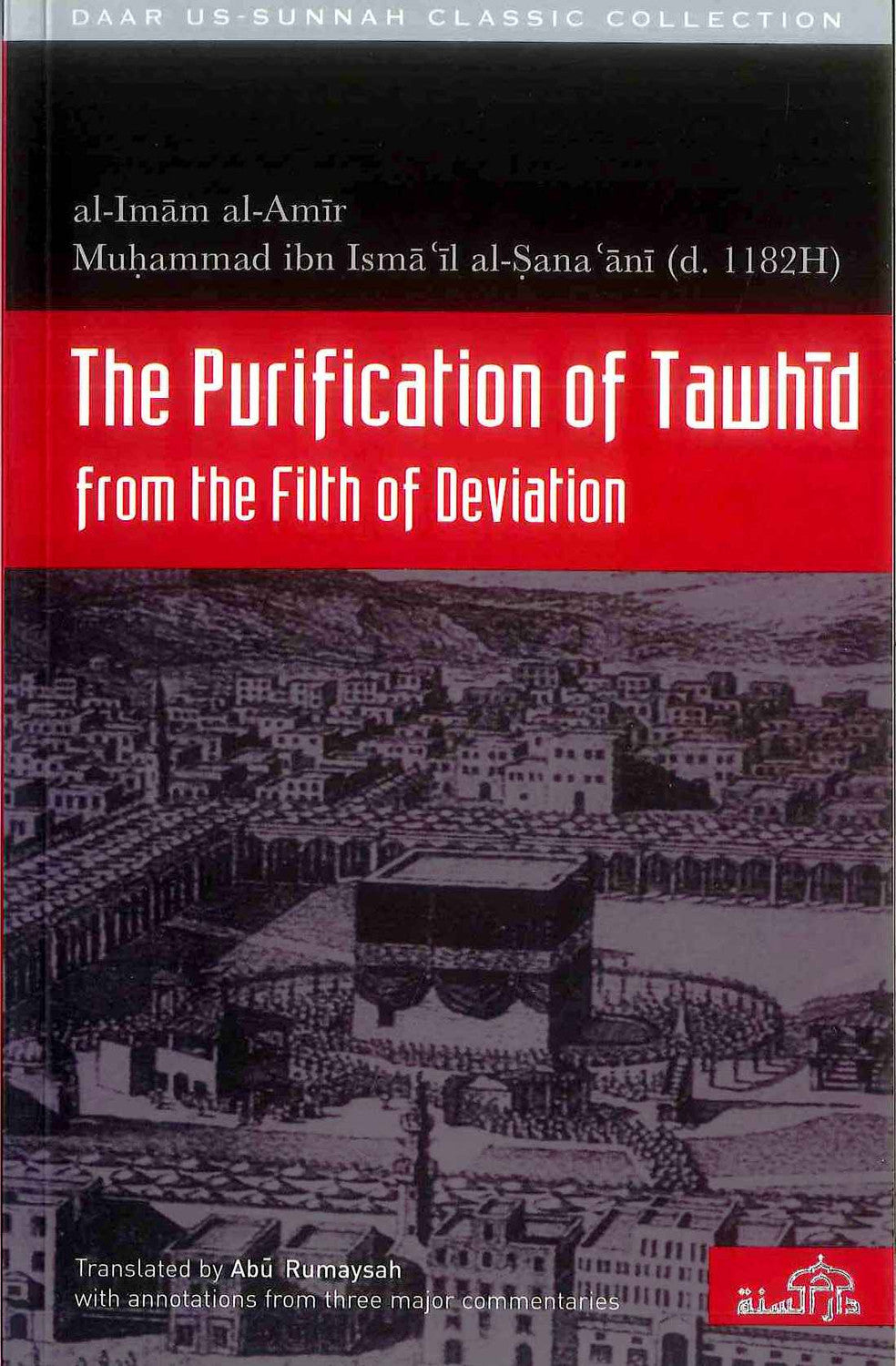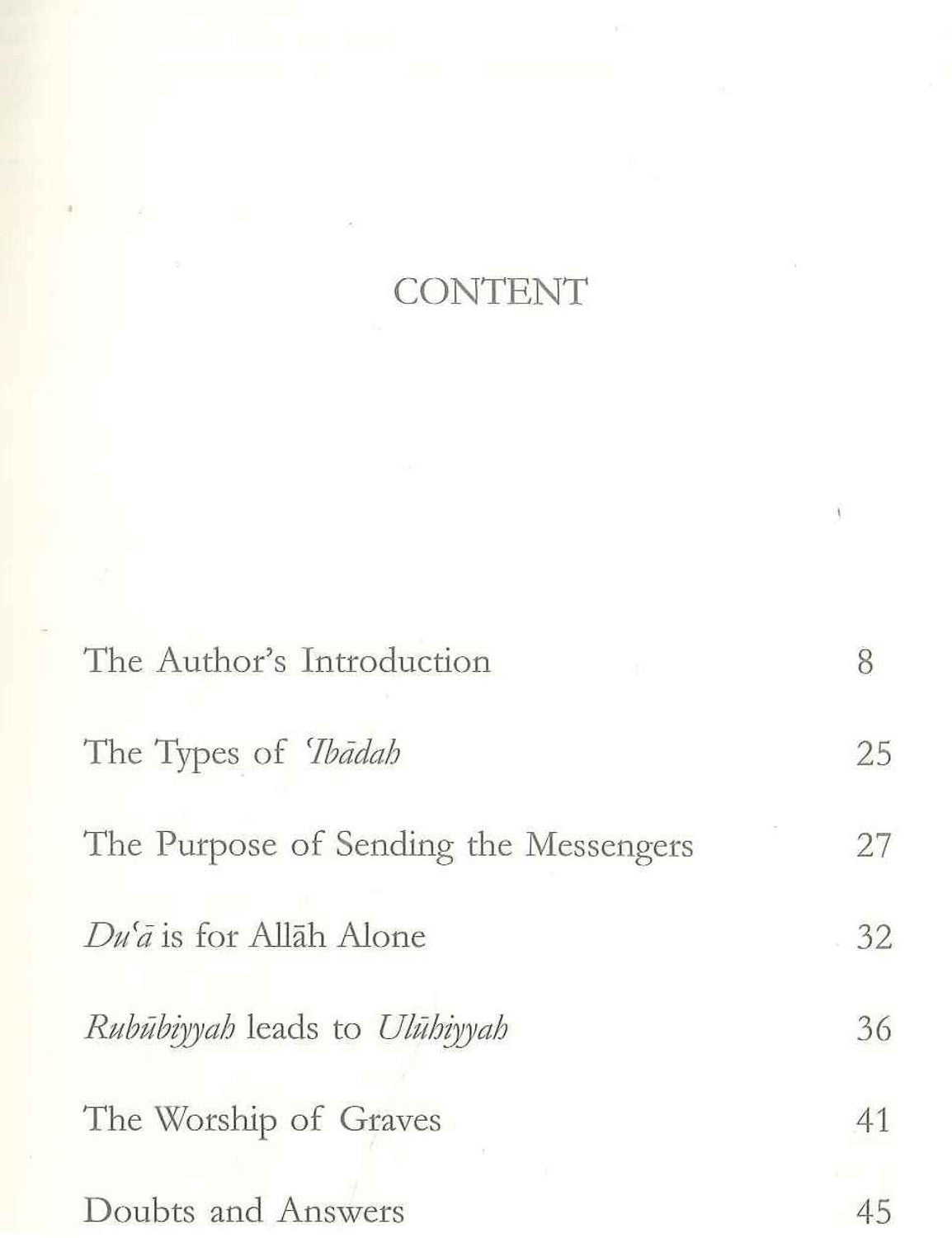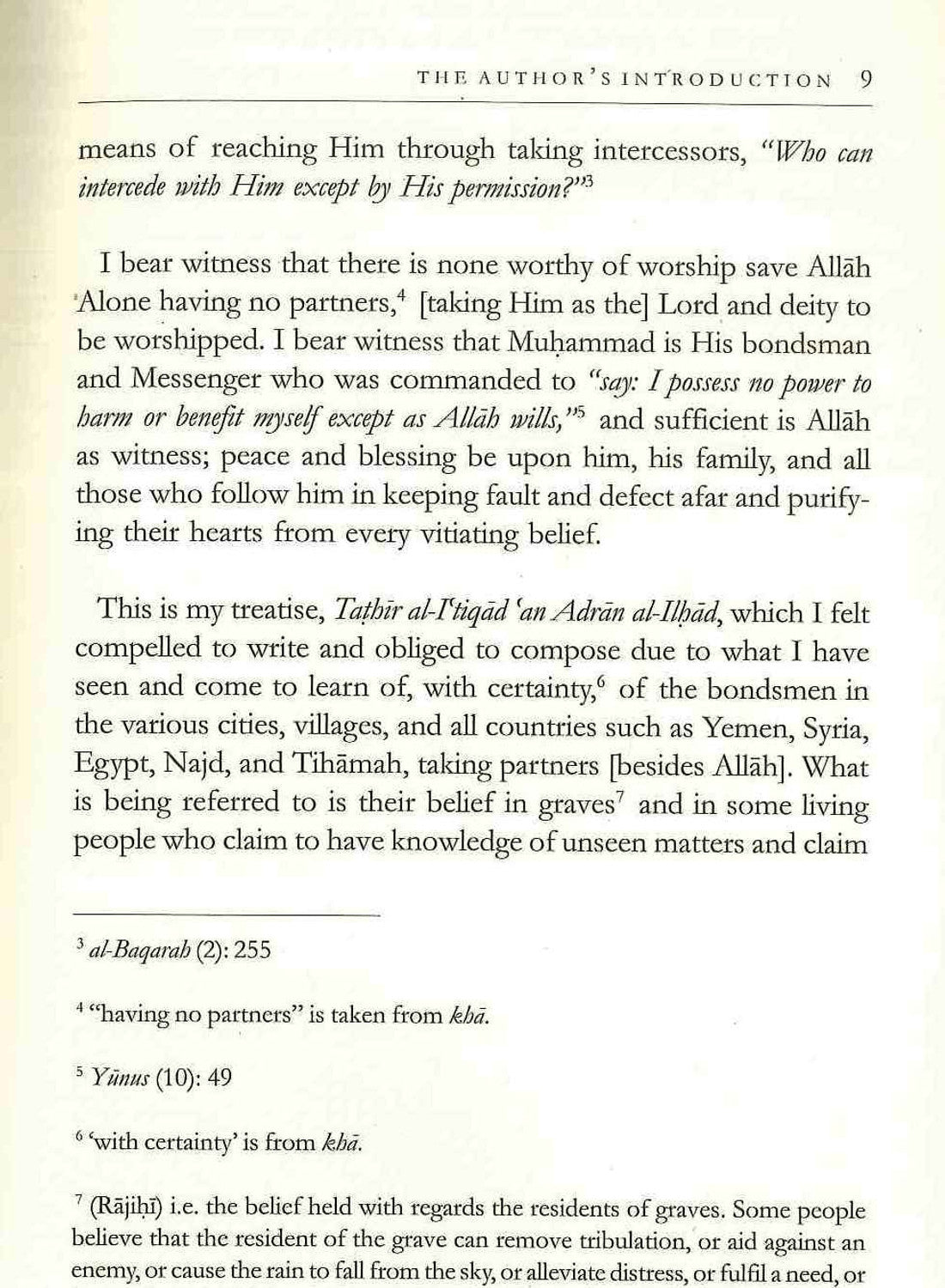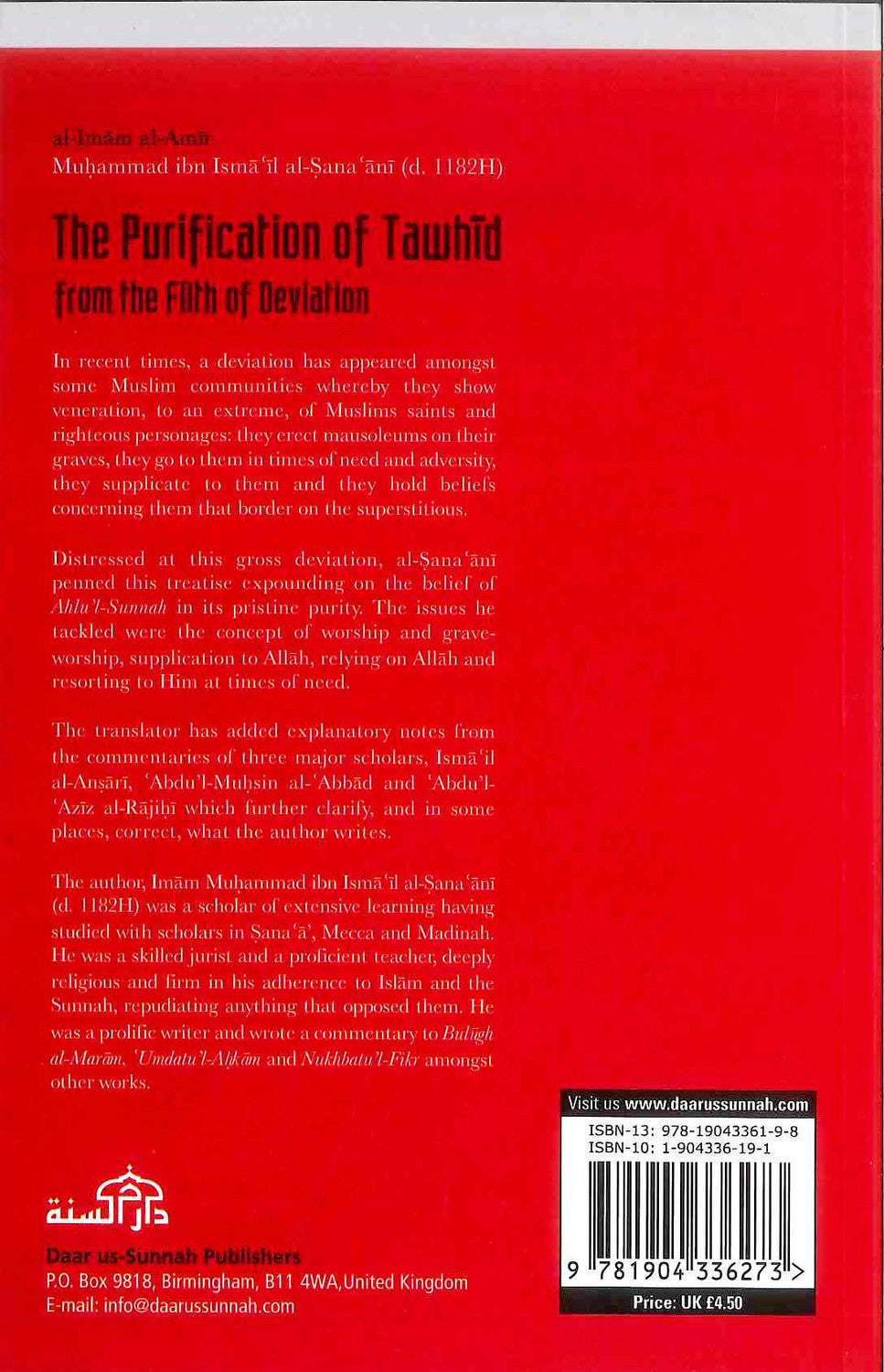The Purification of Tawhid from the Filth of Deviation By Daar Us-Sunnah
The Purification of Tawhid from the Filth of Deviation By Daar Us-Sunnah
Publisher:
Dar As Sunnah Publications
Author:
The Purification of Tawhid from the Filth of Deviation
Language:
English
Binding:
Soft Cover
Pages: 80
Size: A5 |5.8 x 8.3 in| 14.8x 21 cm
Couldn't load pickup availability




Collapsible content
Description of Book
The Purification of Tawhid from the Filth of Deviation By Daar Us-Sunnah
In recent times, a deviation has appeared amongst some Muslim communities wherby they show veneration, to an extreme, of Muslims saints and rigghteous personages: they erect mausoleums on their graves, they go to them in times of need and adversity, they supplicate to them and they hold beliefs concerning them that border on the superstitious. Distressed at theis gross deviation, al-Sana ani penned this treatise expounding on the belief of Ahlu'l Sunnah in its pristine purity. The issues he tackled wher th concept of worship and grave-worship , supplcation to Allah, relying on Allah, relyoing on Allah and resorting to Him at times of need.
Publisher
Dar As Sunnah Publications
Author
- The Purification of Tawhid from the Filth of Deviation
Sample Pages - Content
Page : 01
DAAR US-SUNNAH CLASSIC COLLECTION al-Imam al-Amir Muhammad ibn Isma 'il al-Sana'ani (d. 1182H) The Purification of Tawhid from the Filth of Deviation Translated by Abu Rumaysah with annotations from three major commentaries دار السنة
Page : 02
CONTENT The Author's Introduction The Types of Tbadah 25 The Purpose of Sending the Messengers 27 Du'a is for Allah Alone 32 Rububiyyah leads to Ulubiyyah 36 41 The Worship of Graves Doubts and Answers 45
Page : 03
THE AUTHOR'S INTRODUCTION means of reaching Him through taking intercessors, "Who can intercede with Him except by His permission?" I bear witness that there is none worthy of worship save Allāh 'Alone having no partners,+ [taking Him as the] Lord and deity to be worshipped. I bear witness that Muhammad is His bondsman and Messenger who was commanded to "say: I possess no power to harm or benefit myself except as Allah wills," and sufficient is Allāh as witness; peace and blessing be upon him, his family, and all those who follow him in keeping fault and defect afar and purify- ing their hearts from every vitiating belief. This is my treatise, Tathir al-I'tiqad an Adran al-Ilhad, which I felt compelled to write and obliged to compose due to what I have seen and come to learn of, with certainty," of the bondsmen in the various cities, villages, and all countries such as Yemen, Syria, Egypt, Najd, and Tihamah, taking partners [besides Allah]. What is being referred to is their belief in graves' and in some living people who claim to have knowledge of unseen matters and claim 3 al-Baqarah (2): 255 4 "having no partners" is taken from khā. 5 Yunus (10): 49 "'with certainty' is from kha. 7(Rajihi) i.e. the belief held with regards the residents of graves. Some people believe that the resident of the grave can remove tribulation, or aid against an enemy, or cause the rain to fall from the sky, or alleviate distress, or fulfil a need, or
Page : 04
al-Imam al-Ami Muhammad ibn Isma'il al-Sana'anī (d. 1182H) The Purification of Tawhid from the Filth of Deviation In recent times, a deviation has appeared amongst some Muslim communities whereby they show veneration, to an extreme, of Muslims saints and righteous personages: they erect mausoleums on their graves, they go to them in times of need and adversity, they supplicate to them and they hold beliefs concerning them that border on the superstitious. Distressed at this gross deviation, al-Sana 'ānī penned this treatise expounding on the belief of Ahlul-Sunnah in its pristine purity. The issues he tackled were the concept of worship and grave- worship, supplication to Allah, relying on Allah and resorting to Him at times of need. The translator has added explanatory notes from the commentaries of three major scholars, Isma'il al-Anṣārī, 'Abdu'l-Muhsin al-'Abbad and 'Abdu'l- 'Aziz al-Rajihi which further clarify, and in some places, correct, what the author writes. The author, Imam Muhammad ibn Isma 'il al-Sana'anī (d. 1182H) was a scholar of extensive learning having studied with scholars in Sana'a', Mecca and Madinah. He was a skilled jurist and a proficient teacher, deeply religious and firm in his adherence to Islam and the Sunnah, repudiating anything that opposed them. He was a prolific writer and wrote a commentary to Bulugh al-Maram, Umdatu'l-Ahkam and Nukhbatu'l-Fikr amongst other works. Visit us www.daarussunnah.com ISBN-13: 978-19043361-9-8 ISBN-10: 1-904336-19-1 سنة Daar us-Sunnah Publishers P.O. Box 9818, Birmingham, B11 4WA, United Kingdom E-mail: info@daarussunnah.com 9781904 336273 Price: UK £4.50
al-Imam al-Amir Muhammad ibn Isma il al-Sana ani
Al-Imam Muhammad ibn Isma'il al-Sana'ani (1688–1768) was a renowned Yemeni scholar and reformer known for promoting Tawheed and opposing innovations in worship. He authored works like Subul al-Salam, emphasizing adherence to the Qur'an and Sunnah, and critiqued practices like grave worship. His contributions to Islamic theology and jurisprudence left a lasting impact.




